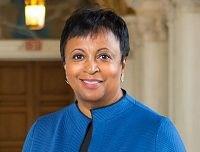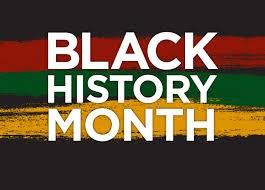
9 minute read
The Alabama Librarian
IMPORTANT ALLA ANNOUNCEMENTS CONTINUED
New Webinar Offered by Government Documents Round Table
Advertisement
Census and Sensibility: Using and Interpreting U.S. Census Records January 27, 2021, at 10:00 AM
First taken in 1790, the U.S. census is probably a genealogist's most-used resource. Beginners and experts alike use the federal census as the starting point for their research. Learn the ins and outs of the census, how it’ s changed from year to year (and why it matters), and how to interpret your ancestors’ responses. Join ALLA's GODORT for this webinar presented by Mary Beth Newbill.
Register for this webinar at https://attendee.gotowebinar.com/ register/2541596306590252048.
The Alabama Librarian wants to hear from YOU!
The Alabama Librarian is ALLA’s peer reviewed journal. It is managed by an Editor-in-Chief and an editorial board of peer reviewers and proofreaders. We are currently seeking submissions written by Alabama librarians and/or about librarianship in our state.
Submissions must be:
written in APA style, 2,000-5,000 words long, and emailed to thealabamalibrarian@gmail.com.
Find out more about The Alabama Librarian here:
https://www.allanet.org/alabama-librarian GET INVOLVED
ALLA Divisions:
YSSLD Youth Services & School Librarians Division
CUS College, University and Special
Libraries
PLD Public Library Division
ALLA Roundtables:
ALIRT Alabama Library Instruction
CDMRT Collection Development and
Management
GODORT Government Documents
MCRT Multicultural Information
PART Paraprofessional
RASRT Reference and Adult Services
TSSRT Technical Services & Systems
YASRT Young Adult Services
ALLA Committees:
Association Awards Authors Awards Bibliographic Budget & Finance Bylaws Convention Education Emeritus Council (Formerly Past Presidents) Employee Evaluation Handbook Intellectual Freedom Legislative Development Membership Nominating Planning Public Relations Publications
To get involved with an ALLA Committee, fill out the Committee Interest form at: https://goo.gl/forms/ tS79Dg6YqFbjiS812
Image by Cheska Poon from Pixabay
3
BLACK HISTORY MONTH HOT TOPIC: __
4
BLACK HISTORY MONTH FORUM
The National Center for the Study of Civil Rights and African American Culture at Alabama State University will celebrate Black History Month with a virtual program titled “The Origins and Evolution of Black History Month.” The program, held in collaboration with the ASU Student Government Association, and the Harper Councill Trenholm Branch of the Association for the Study of African-American Life and History, will be held February 25, at 5:30 CST on Facebook Live (@CivilRightsCenter) and on YouTube Premiere.
This collaborative event discusses the origins of Black History Month with Carter G. Woodson and its association with Omega Psi Phi Fraternity, Inc. The program will also look at how the celebration has expanded from a week to the entire month of February and how it has been commemorated at Alabama State University. For more information, contact Destiny Williams at (334) 229-6888 or dwilliams@alasu.edu.
ASU & POWER OF LIFE GIVE AWAY 30,000 MASKS
Alabama State University partnered with the Power of Life Foundation to distribute 30,000 masks and bags of food to residents of Montgomery. The Foundation was founded by ASU alumnus, actor and motivational speaker, Lane Harper. Harper also is a veteran officer with the Birmingham Police Department. Hundreds of cars lined up early to receive the donations. The event also featured a live DJ. Volunteers included Stinger, the ASU cheerleaders, the CommUniversity Committee and Board of Trustee member, Delbert Madison. It's a Great Time to Be a Hornet!

DOROTHY B. PORTER: DEWEY DECIMAL DECOLONIZER
In 1932, Dorothy Porter earned an M.S. in library science from Columbia University and became their library school’s first black graduate. However, she may be best known as the librarian who changed how works by black writers are classified. Overall, Porter’s classification method challenged the inherent racism and colonial gatekeeping of knowledge within the Dewey Decimal System.
Most of Porter’s library career was spent building the Moorland-Spingarn Research Center at Howard University into a world-class research collection on Black/Africana history and culture. A substantial portion of the library’s collection was gifted by Howard alumnus, Reverend Jesse E. Moorland and NAACP’s legal committee chairman Arthur B. Spingarn. These acquisitions were the backbone of the university’s library. Porter was concerned with assigning proper value and classification to the collection. However, at the time of acquisition, no other library in the country had expertise in properly classifying works by black authors.
Every library Porter consulted for classification guidance relied solely on the Dewey Decimal Classification. In that system, black scholarly work was classified using either the number 326 that meant slavery or the number 325 for colonization. For Porter, it became necessary to develop a satisfactory classification workaround for this collection that did not reimpose stereotypes of black culture that prevailed within the Dewey Decimal System. Porter classified works within the collection by genre and author in order to highlight the role of black people in all subject areas like art, education, history, medicine, music, and even literature. This approach helped to combat racist stereotypes and false narratives while celebrating black self-representation.
During her over 40-year library career, Dorothy Porter devoted herself to developing a modern research library at Howard University. Not only did she build a world-renowned library for special collections of the global black experience, she also became a pioneer in the field of library science through her challenge of the racial bias within the Dewey Decimal System.
https://bookriot.com/pioneering-black-american-librarians/

HOT TOPIC: __ BLACK HISTORY MONTH
5
BLACK HISTORY MONTH HOT TOPIC: _
6
BLACK LIBRARIANS OF NOTE

Carla Hayden is th e 14th Librarian of Congress. She is the first woman and the first Black
American librarian to hold the position. Prior to this appointment, Hayden was the Executive
Director of the Enoch Pratt Free Library in Baltimore, Maryland. Hayden also served as presi-
dent of the American Library Association from 2003 to 2004 where she was a vocal public op-
ponent of the Patriot Act, which would give the Justice Department and the FBI the power to
access library user records.
Clara Jones w a s a p i o n e e r d u r i n g e v e r y s te p o f h e r li f e a n d c a r e e r i n lib r a r y s c i-
ence. After receiving a degree in Library Science from the University of Michigan, Jones accept-
ed the position as director of the Detroit Public Library and became the first black director of a
major city public library. Soon after becoming director of the Detroit Public Library, Jones was
elected the first black president of the American Library Association. During segregation in St.
Louis, she chose to attend school at the Milwaukee State Teachers College, where she was one of
six Black students, instead of the local teachers college designated for Black students. Jones
wanted to be an elementary school teacher, but decided to become a librarian instead of a teach-
er after transferring to Spelman College. During her tenure as director and president, Jones
worked to desegregate libraries and their services as well as improve library culture by encour-
aging the ALA to pass the “Resolution on Racism and Sexism Awareness.”
BLACK LIBRARIANS OF NOTE CONTINUED
Edward C. Williams w a s n o t o n ly a s u c c e s s fu l p r o fe s s io n a l li br a r ia n d u r i n g
the time of segregation, he was also a social activist, author, and translator. He constantly
addressed the challenges faced by libraries patronized by black people like deteriorating
buildings, staff shortages, and lack of funding. Williams was also heavily involved with
several library associations. He was a founding member of the Ohio Library Association
and was an active member of the American Library Association.
In 1999, American Libraries named Williams as one of the “100 Most Important Leaders
We Had in the 20th Century.” His novel The Letters of Davy Carr was rediscovered in
2004 and published as When Washington Was in Vogue. The discovery helped to esta b-
lish Williams’s place in the canon of Harlem Renaissance literature.

HOT TOPIC: _ BLACK HISTORY MONTH
7
LIGHTS ALABAMA LIBRARY HIGH
8
NEW YEAR, NEW FUN AT THE ALABASTER LIBRARY
Contributed by Frances Smith Youth Services Librarian, Albert L. Scott Library
All of the events below were livestreamed on our library’s Facebook page: facebook.com/AlbertLScottLibrary/live
Mighty Milk Monday!
National Milk Day on January 11 was celebrated at the Albert L. Scott Library in Alabaster by learning about milk from all kinds of animals, reading library books, making a craft, and sharing an ice cream recipe. Youth services librarian Frances Smith led the program on the library’ s Facebook page facebook.com/ AlbertLScottLibrary/live. She read Ernestine’ s Milky Way w ritten by Kerry Ma dden-Lunsford and The Milk Makers by Gail Gibbons. She also demonstrated how to make marbled milk paper.


Fun Food Craft at Story Time
Reading friends have fun making snowmen with marshmallows, pretzels, and candy during Sensory Story Time on January 13. They added their creations to cups of hot cocoa. Sensory Story Time is held the second and fourth Wednesday of every month at 3:30 p.m.
Name Game
Names are important. That is why that topic was the focus during the January 21 session of the Civic Life Read to Lead Book Club a t the Albert L. Scott Library. Youth services librarian Frances Smith and Abby Holcombe of the David Mathews Center for Civic Life presented ‘Claim Your Name’. They combined reading, chatting, tongue twisters, and name crafts on the library’ s Facebook page. The next session is February 18 at 4:00 p.m.

NEW HOURS & SERVICES AT THE BIRMINGHAM PUBLIC LIBRARY
The Birmingham Public Library is implementing new in-person and curbside service days and hours, effective beginning Monday, February 22, 2021. The hours for curbside check-out of library materials and in-person visits to check out books, DVDs, and get library services such as printing and computer usage are as follows:
Avonale, Five Points West, Southside, Springville Road Libraries
Monday – Friday
9 a.m. – 4 p.m.
Central Library Monday – Saturday
9 a.m. – 4 p.m.
East Ensley, Ensley, Inglenook, North Avondale, Powderly, West End and Woodlawn Libraries
Tuesday and Thursday
9 a.m. – 4 p.m.
Some BPL locations, such as the Central Library downtown, also offer services such as notaries and passport applications. Click here for details https:// bplolinenews.blogspot.com/2021/01/notary-services-available-at-birmingham.html
East Lake, North Birmingham, Pratt City, Smithfield, Titusville, and Wylam Libraries Monday, Wednesday, and Friday
9 a.m. – 4 p.m.
Remember even when our libraries are closed physically, BPL remains open virtually 24 hours a day, seven days a week on our website at www.cobpl.org, on our mobile app and our social media websites including Facebook, Instagram, YouTube and Twitter @BPL.
ALABAMA LIBRARY HIGH LIGHTS
9

